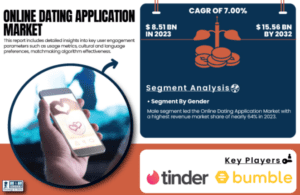A recent lawsuit filed by Corwin Law, a Florida-based consumer advocacy group accuses Match Group, owners of Match.com and a variety of other online dating sites, of using deceptive business practices in order to promote known scams and convince customers to sign up for paid versions of accounts. This allegation brings up disturbing concerns about possible problems with subscription-based dating sites.
Fake Profiles on Match
The lawsuit centers upon Match Group’s advertising practices regarding the Match.com app. This app allows users to create profiles at no cost; however, they cannot respond to messages without purchasing a membership. The issue at hand involves a targeted e-mail campaign.
Users would receive e-mails from Match noting that another user was interested and had liked them or sent them a message, encouraging them to subscribe in order to reveal the user’s identity and interact with them. However, the lawsuit alleges that these e-mails were regarding accounts that the company had already found to be fraudulent.
As such, when consumers subscribed, they found that messages were primarily from fake love interests including phishing and romance scams or from accounts that had long been inactive. Additionally, it was noted that current subscribers did not receive notifications when interest was expressed by an account flagged as fake.
The inherent problem with these accounts is not their existence but that their existence was known by Match and that attempts at fraudulent activity were leveraged to trick users into purchasing a match subscription. However, the lawsuit also alleged another concerning issue with the dating site.
Match is well known for its “Find Love Guarantee,” which advertises that people who cannot find love in the first six months are eligible for an additional six months free. This is an enticing offer aimed at increasing subscriptions.
However, users often found that at the end of their six months with no luck, they would apply for the free six months only to be told that they did not fulfill an obscure term and were not eligible for the promotion. The match lawsuit alleges this as another deceptive business practice by the company.
Finally, the lawsuit notes that Match.com at times continued charging users who had unsubscribed from the service, resulting in charges to pile up. These customers then had to deal with a lengthy, adversarial refund process in order to get their money back.
Match Lawsuit a Familiar Story
For those who may feel that they have heard this story before, the reality is that they likely have. In fact, the United States’ Federal Trade Commission filed a lawsuit against Match Group in 2019 on behalf of thousands of consumers who became targets of fraud after being prompted to subscribe to Match by one of these “you’ve caught someone’s eye” messages.
This revelation is particularly concerning and suggests a continued history of practices aimed at generating subscriptions at the peril of users. While dating apps are often maligned for the presence of potential scammers, users are typically under the understanding that companies are working to protect them rather than harnessing scammers to fleece them of money.
With these lawsuits alleging that known fake profiles on Match are being used to encourage users who have created a free Match profile to become paying members, this underscores the importance of consumers practicing careful decision-making regarding their activity on dating apps. Specifically, it seems that advertisements by companies perhaps should not be taken at face value.
This is added to an already existing large list of things that users must do in order to stay vigilant against harm when navigating the online dating world. In addition to protocols to protect personal safety and looking out for telltale signs of scams, users of dating apps must now be concerned that companies are not necessarily looking out for their best interests.
The multiple lawsuits regarding fake profiles on Match are perhaps one reason why many people have been migrating away from paid membership sites and towards sites that are completely free with in-app purchases for special perks such as having unlimited swipes or being shown to more users.
The online dating world is certainly difficult to navigate even without fears of being targeted by scammers. Finding love online is a complex and sometimes frustrating process. The news of practices alleged in this lawsuit may further frustrate the plethora of online daters.
Final Thoughts
Perhaps the major takeaway from the news of this lawsuit regarding Match subscriptions is that a user’s safety ultimately falls upon themselves. Take steps to carefully evaluate dating apps before committing money to them, specifically for long-term subscriptions. Additionally, pay careful attention to red flags and warning signs that someone you are interacting with online may be a scammer. If something seems too good to be true, it likely is.



